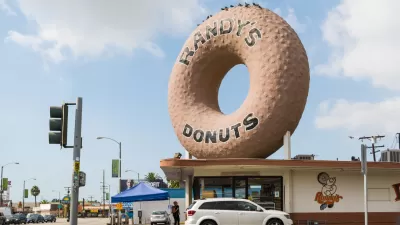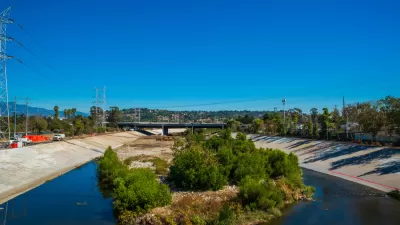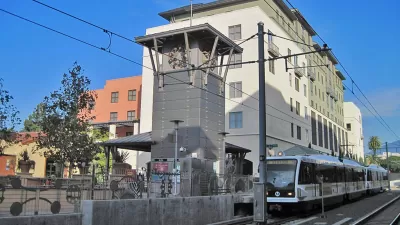Los Angeles Times op-ed writer Erin Aubry Kaplan shares her feelings upon seeing whites return to Inglewood, California half a century after they fled. One consistent theme emerges: "Whatever black people have can be taken away."

"Gentrification is big news all over L.A., and working-class and lower-income people across the county stand to lose a lot from its advance," writes Erin Aubry Kaplan. "They already have. But black people in particular will feel the sting."
Kaplan, an African-American woman has lived "in and around" the city of Inglewood for the last 13 years. In this column, she traces the history of the city, incorporated 1908 in the South Bay region of Los Angeles County, beginning with the first blacks who moved there during the 1960s, causing the resentment of many whites, resulting in white flight. The city of 111,000 is predominantly Latino and African American
Speaking for blacks, she writes:
In lieu of economic wealth, we lay down roots, we build social cohesion out of the vacuum created by white flight, avoidance and indifference. Our neighborhoods are our strength, our visibility.
Leimert Park [a neighborhood in the city of Los Angeles] — a flashpoint of gentrification now — put Afrocentric culture on the map, literally, and has long been a hub of black civic and political organization. Inglewood isn’t Leimert Park, but it’s a significantly black city and distinct simply for that reason/
The pattern of shrinking black space is hardly new, by the way: Over the years, immigration and Latino growth remade traditionally black areas like South Central and Compton and Inglewood too. But today’s white influx feels particularly ominous, like the worst of our bad history looping back on itself.
Kaplan ends by writing that she doesn't see the return of whites to Compton as a welcomed sign of integration but as a "warning" that gentrification is encroaching, and displacement not far behind.
Hat tip to Julie Bloom of New York Times/California Today.
FULL STORY: Op-Ed: Whites are moving back to Inglewood. There goes our neighborhood.

Planetizen Federal Action Tracker
A weekly monitor of how Trump’s orders and actions are impacting planners and planning in America.

Chicago’s Ghost Rails
Just beneath the surface of the modern city lie the remnants of its expansive early 20th-century streetcar system.

San Antonio and Austin are Fusing Into one Massive Megaregion
The region spanning the two central Texas cities is growing fast, posing challenges for local infrastructure and water supplies.

Since Zion's Shuttles Went Electric “The Smog is Gone”
Visitors to Zion National Park can enjoy the canyon via the nation’s first fully electric park shuttle system.

Trump Distributing DOT Safety Funds at 1/10 Rate of Biden
Funds for Safe Streets and other transportation safety and equity programs are being held up by administrative reviews and conflicts with the Trump administration’s priorities.

German Cities Subsidize Taxis for Women Amid Wave of Violence
Free or low-cost taxi rides can help women navigate cities more safely, but critics say the programs don't address the root causes of violence against women.
Urban Design for Planners 1: Software Tools
This six-course series explores essential urban design concepts using open source software and equips planners with the tools they need to participate fully in the urban design process.
Planning for Universal Design
Learn the tools for implementing Universal Design in planning regulations.
planning NEXT
Appalachian Highlands Housing Partners
Mpact (founded as Rail~Volution)
City of Camden Redevelopment Agency
City of Astoria
City of Portland
City of Laramie





























